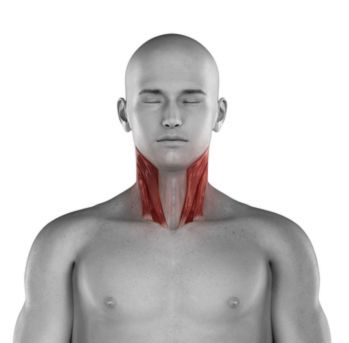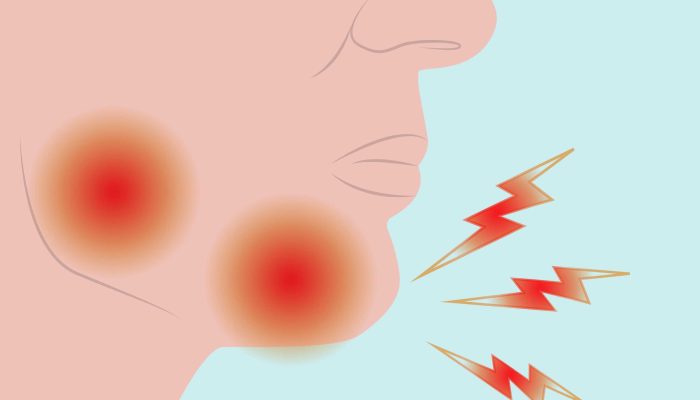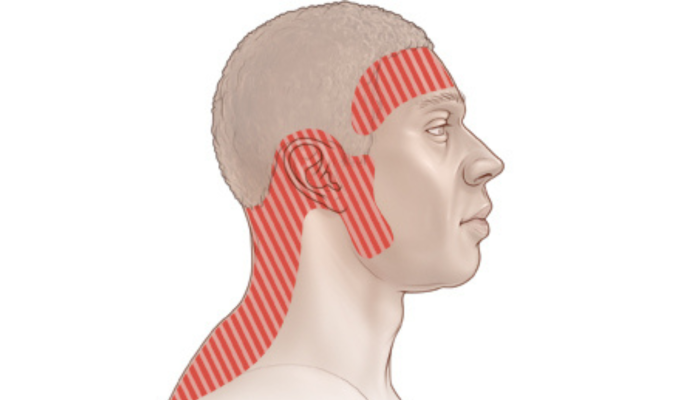
Muscular tinnitus, also known as somatic tinnitus, is a condition where individuals hear sounds in their ears that are caused by muscle activity. Unlike traditional tinnitus, which is often related to hearing loss or exposure to loud noises, muscular tinnitus arises from muscle spasms in the ear.
Muscular Tinnitus Symptoms and Signs
Muscular tinnitus is characterized by various symptoms that can significantly affect a person’s quality of life. The most common symptom is the perception of rhythmic sounds or pulsations in the ear. These sounds are often described as clicking, tapping, or fluttering noises and are usually in sync with muscle contractions. Other signs include:
- Ear muscles twitching: The sensation of the muscles in or around the ear twitching can be distressing and persistent.
- Muscle spasm in the ear: Spasms can cause involuntary movements and noises that can be heard internally.
- Muscle twitch inside the ear: These twitches can create intermittent or continuous sounds.
- Muscle spasm in the eardrum: This can lead to clicking sounds within the ear.
- Ear muscle spasm: This can affect the overall function and sensation within the ear.
Muscular Tinnitus Causes
The exact causes of muscular tinnitus can vary, but they generally involve issues with the muscles and nerves in the ear and surrounding areas. Common causes include:
- Muscle spasms in the ear canal: These can be triggered by stress, fatigue, or overuse of the muscles.
- Stapedius muscle spasm: The stapedius muscle, located in the middle ear, can spasm and cause tinnitus symptoms.
- Inner ear muscle spasm: Spasms in the inner ear muscles can disrupt normal auditory function.
- Muscle spasm in the inner ear: This can occur due to neurological conditions or injuries.
- Muscle spasm inside the ear: Conditions like multiple sclerosis or other nerve disorders can lead to muscle spasms in the ear.
Who Gets Muscular Tinnitus?
Muscular tinnitus can affect individuals of all ages, but certain groups are more susceptible:
- Athletes: Repeated strain and stress on the muscles can lead to spasms, including those in the ear.
- Individuals with high stress levels: Stress can exacerbate muscle tension and lead to spasms.
- People with neurological disorders: Conditions like multiple sclerosis or Parkinson’s disease can increase the risk of developing muscular tinnitus.
- Those with ear injuries: Trauma to the ear can result in muscle spasms and tinnitus symptoms.
Complications of Muscular Tinnitus
If left untreated, muscular tinnitus can lead to several complications:
- Chronic discomfort: Persistent muscle spasms can cause ongoing discomfort and disrupt daily activities.
- Hearing problems: Continuous muscle spasms can interfere with normal hearing and lead to hearing loss over time.
- Mental health issues: The constant noise and discomfort can contribute to anxiety, stress, and depression.
- Sleep disturbances: The noises caused by muscle spasms can make it difficult to fall and stay asleep, leading to fatigue and other health issues.
How to Stop Muscle Spasms in Ear
While muscular tinnitus can be challenging to manage, several strategies can help alleviate symptoms:
- Relaxation techniques: Stress reduction through techniques like meditation and yoga can help reduce muscle tension and spasms.
- Medications: Muscle relaxants and anti-anxiety medications can help manage the symptoms of muscle spasms in the ear.
- Physical therapy: Exercises and stretches designed to strengthen and relax the ear muscles can be beneficial.
- Botox injections: In some cases, Botox can be used to reduce muscle activity and alleviate symptoms.
- Surgical intervention: In severe cases, surgery may be necessary to address the underlying cause of muscle spasms.
By understanding the symptoms, causes, and treatment options for muscular tinnitus, individuals can take steps to manage this condition and improve their quality of life.
When to Contact a Doctor
Muscle spasms in the ear can be unsettling, often causing discomfort and affecting hearing. It’s essential to know when to seek medical advice. If you experience persistent ear muscle twitching, muscle spasms in the ear, or muscle spasms in the inner ear that last more than a few days, it’s time to see a doctor. Other signs that necessitate a doctor’s visit include severe pain, hearing loss, dizziness, or any discharge from the ear. Early intervention can help prevent complications and identify any underlying conditions that may be causing these symptoms.
Muscular Tinnitus Diagnosis
Muscular tinnitus, characterized by ear muscle twitching or muscle spasms in the ear, can be diagnosed through a combination of patient history, physical examination, and specialized tests. During the diagnosis, your doctor will inquire about the frequency, duration, and intensity of the muscle spasms inside the ear. They may use an otoscope to inspect the ear canal and eardrum for any abnormalities. In some cases, imaging tests like MRI or CT scans might be necessary to rule out other potential causes. Audiometric tests can also help determine if the muscle spasms are affecting your hearing.
Muscular Tinnitus Treatment
Treating muscular tinnitus often involves addressing the underlying cause of the muscle spasms in the ear. Here are some common treatment options:
- Medications: Muscle relaxants or anti-anxiety medications can help reduce the frequency and severity of muscle spasms in the eardrum or inner ear.
- Therapy: Physical therapy exercises aimed at strengthening and relaxing the muscles around the ear can be beneficial.
- Botox Injections: In severe cases, Botox injections can be used to paralyze the muscles causing the spasms, thereby providing relief.
- Surgery: Rarely, surgical intervention might be necessary, especially if there is a structural issue causing the muscle twitch inside the ear.
Additionally, lifestyle changes like reducing caffeine intake and managing stress can also help minimize muscle twitching in the ear.
Can You Prevent Muscular Tinnitus?
Preventing muscular tinnitus involves adopting habits that reduce the risk of muscle spasms in the ear canal or inner ear. Here are some preventive measures:
- Stress Management: Since stress can exacerbate muscle spasms, practicing stress-reduction techniques like meditation, yoga, and deep breathing exercises can help.
- Healthy Diet: Ensuring a balanced diet rich in magnesium and calcium can aid in muscle health and prevent muscle spasms in the ear.
- Regular Exercise: Regular physical activity can improve overall muscle tone and reduce the likelihood of spasms.
- Proper Posture: Maintaining good posture, especially when using electronic devices, can prevent strain on the neck and ear muscles.
- Avoiding Stimulants: Limiting the intake of caffeine and other stimulants can reduce the occurrence of muscle twitching in the ear.
Takeaway
Muscular tinnitus, marked by muscle spasms in the ear, can significantly impact your quality of life. Knowing when to seek medical attention, understanding the diagnosis process, and exploring various treatment options are crucial steps in managing this condition. Preventive measures such as stress management, a healthy diet, regular exercise, and proper posture can also help reduce the risk of developing muscle spasms in the ear. If you experience persistent or severe symptoms, consult a healthcare professional for an accurate diagnosis and appropriate treatment plan.
If you have any questions for us, you can see more at: heathcarenow, Youtube, Twitter(X),…
See more of our other articles: What is Jaw Pain ?, Catabolism vs. Anabolism: What’s the Difference?, Tennis Ball Massage for Myofascial Trigger Points





